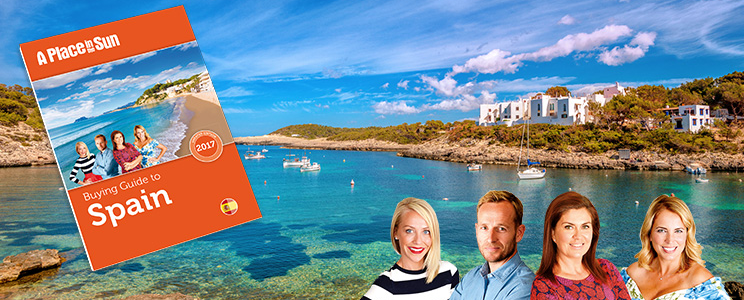
Jonathan Eshkeri of E&G Solicitors in Spain looks at how you should approach building a pool – the right way.
We Brits often have a love-hate relationship with the Mediterranean climate. We love the sun, but we are often not so keen on the heat. Blue skies cheer us up, but the antidote to the warm side eff ect of the blazing sun is a lovely blue pool to dive into when the thermometer seems as if it is about to burst. In fact, a pool is almost always an essential requirement of anyone buying a property on or near the Spanish coast.
If you buy on a development then there will always be a communal pool, but if you are considering purchasing a detached house on a plot, then you will be broadening your options if you consider building your own pool, whether because no pool has been built at a house that you fancy, or because the pool already built there is not exactly what you were after. While building a whole house from scratch is a bit of a task in Spain, even for a native Spaniard, building a pool is not quite as onerous and is far less likely to go wrong.
Plan it the right way
If you are thinking of building a pool or modifying an existing pool, the place to start is the planning rulebook. In order to establish the local rules, enquiries must be made to the local town hall. Does the general plan allow a pool to be built? If so, can you build the pool that you want while maintaining sufficient distance from the neighbours’ respective borders and from the street?
Is there sufficient space on the plot for a pool to be built, or do the existing structures represent the entirety of what is permitted to be built upon the plot? The answers to these questions will vary, depending upon the land upon which your property is built. For example, if your property is on rural land (rústico) then it is extremely unlikely that you will be granted permission for any development that extends the footprint of the property. While you may be granted permission for a water deposit painted blue, it may well not extend to a tiled swimming pool.
An architect will need to prepare a drawing illustrating what you want to build and submit it to the local town hall for approval. You will have determined previously whether the plans will be approved because provided they accord with the general plan your architect will have made sure of that. There will be a small fee to pay to the town hall and a not excessive fee to pay to the architect for his/her work.
Lawyers will make life easier...
It can be a good idea to engage an independent Spanish lawyer to assist you with the planning process, as this will help the whole process run much more smoothly. If you are considering purchasing a property with a view to building a pool it will be essential that before you have committed to the purchase you instruct your lawyer to ascertain whether permission will be granted for the works that you want to carry out, particularly if they are an essential part of your plan.
Remember that falling foul of the planning rules in Spain can have serious consequences. If you are found to have infringed the local planning rules a range of penalties can be imposed, from a fine to a demolition order. With that in mind, it is sensible to approach any development in accordance with the local rules, as any other approach will surely cost you more in the long run.
When your proposed development has been approved and it comes to carrying out the work it makes good sense to engage a reputable pool company whose work you have seen complete. Speaking with past customers is a very good idea. Such companies will often charge slightly more, but peace of mind is worth a great deal.
Register your pool
Once the build is complete you will need to complete the steps necessary so that the pool is reflected on the property register and on the “catastro”, another property register in Spain maintained for the purposes of taxation. There will be a small amount of tax to be paid for registering the pool on the property register and your annual property tax may increase slightly from then on, but not excessively.
